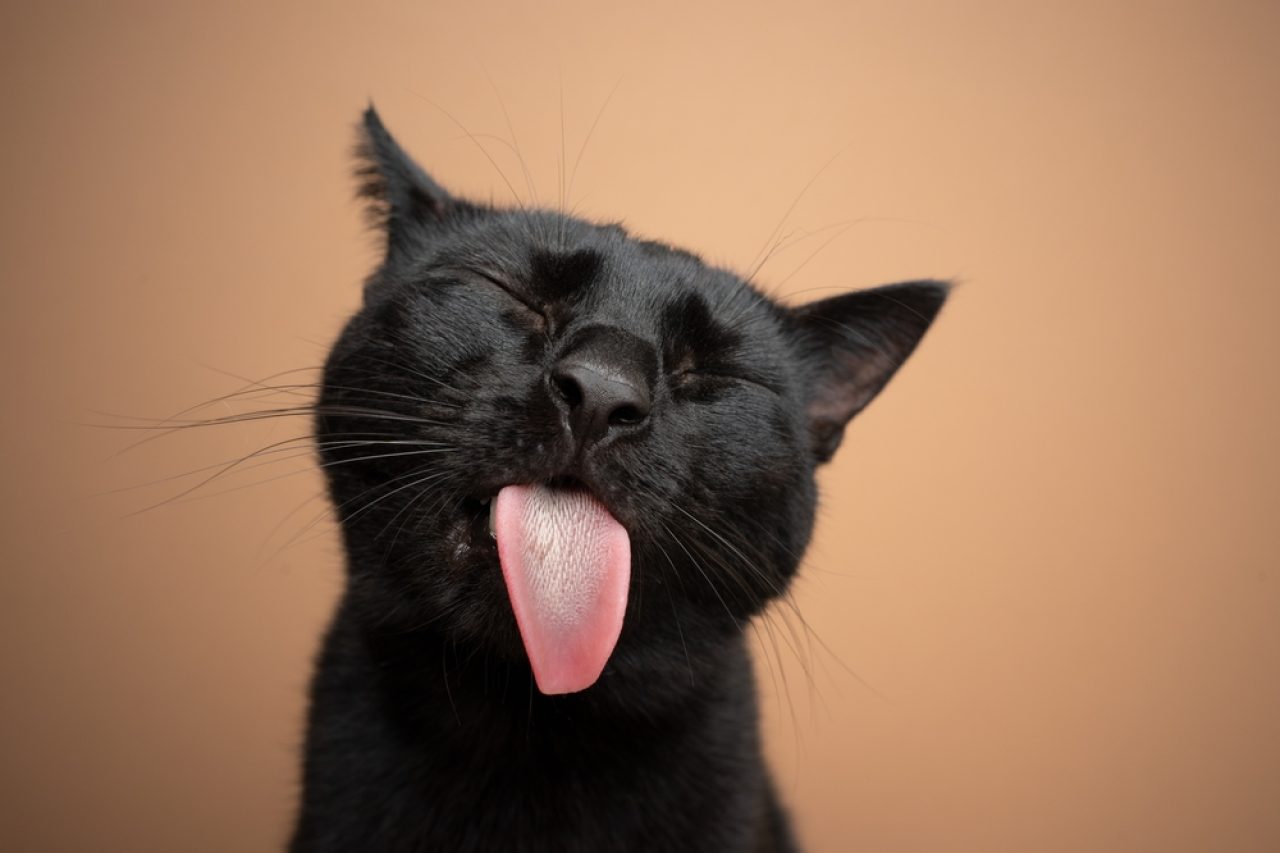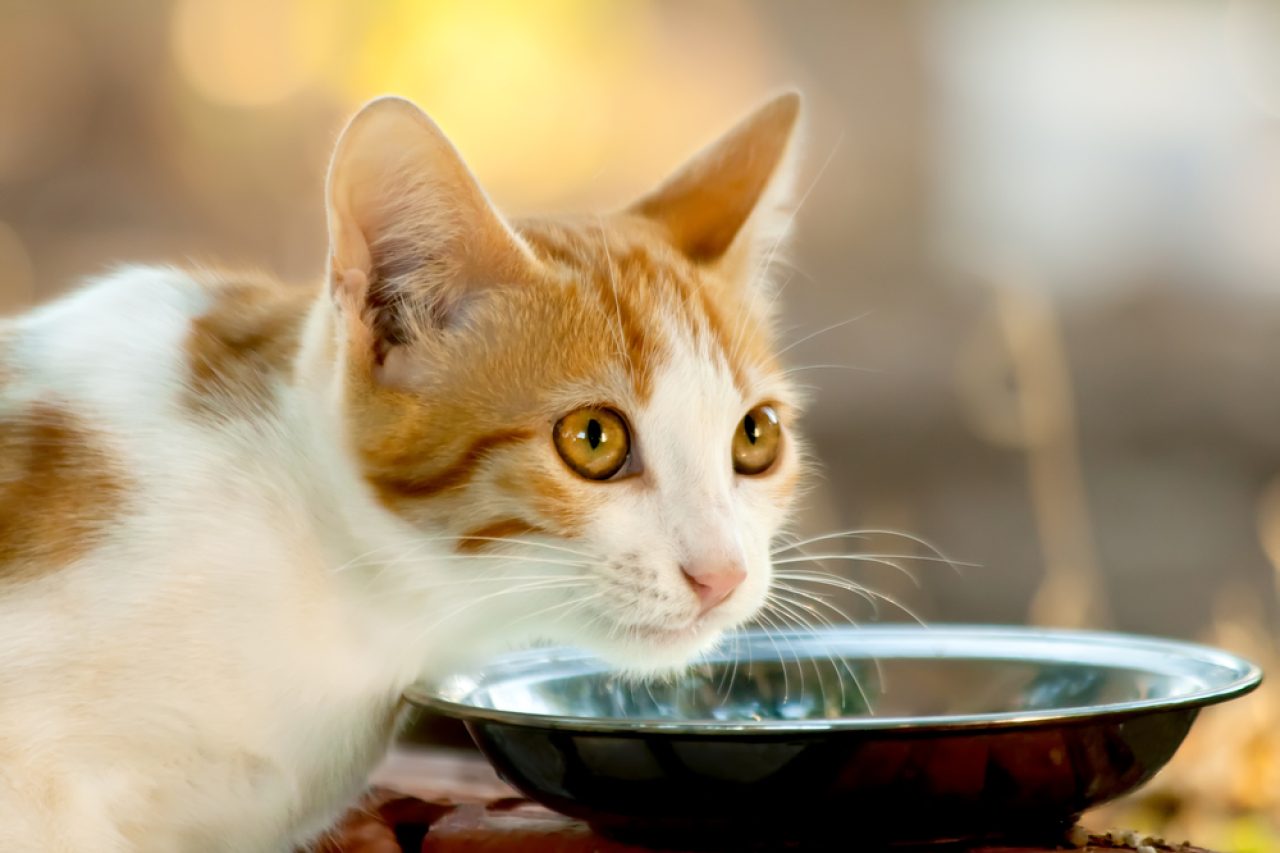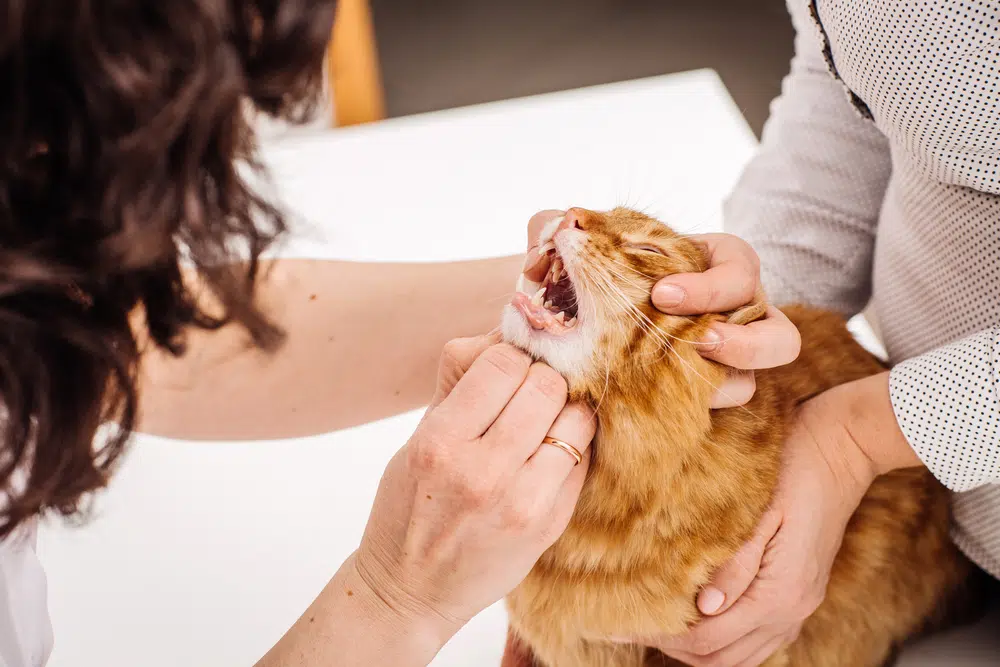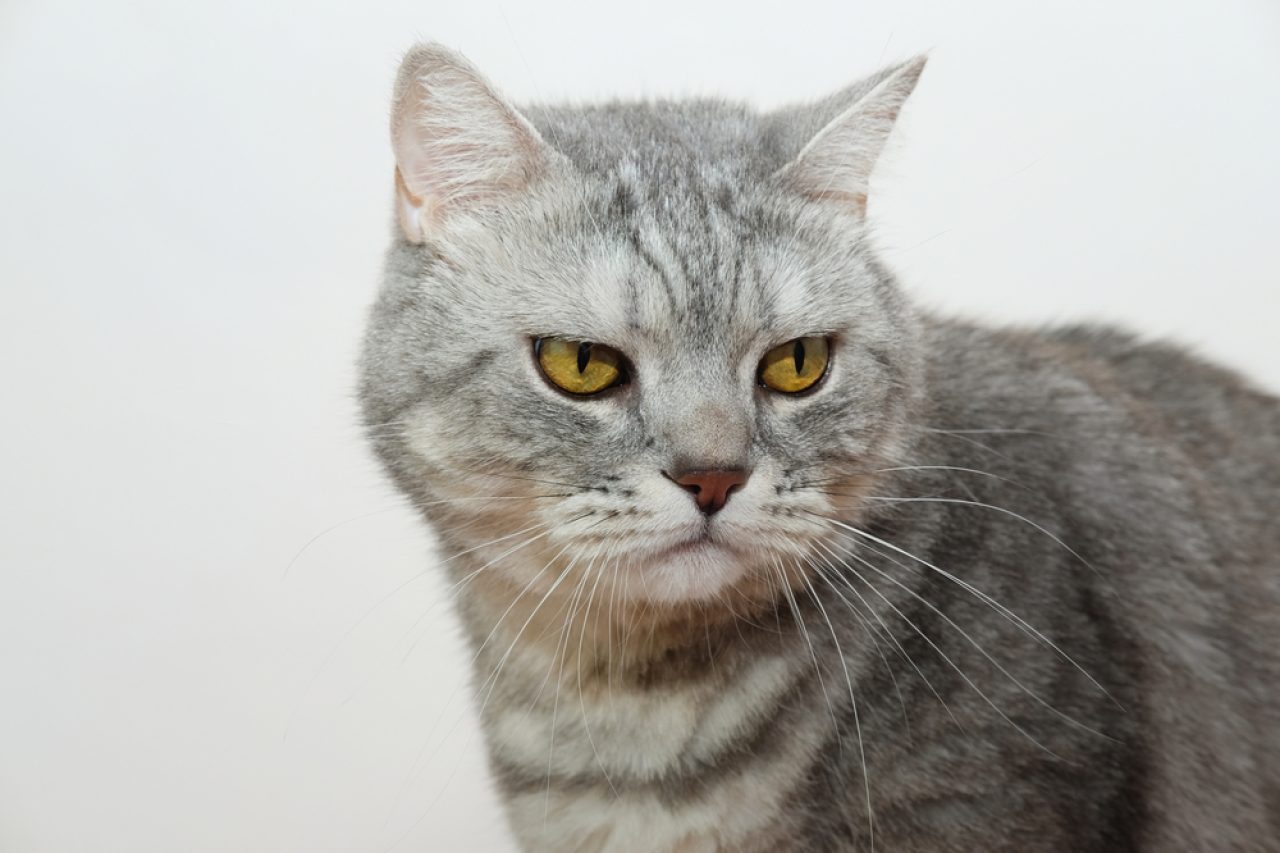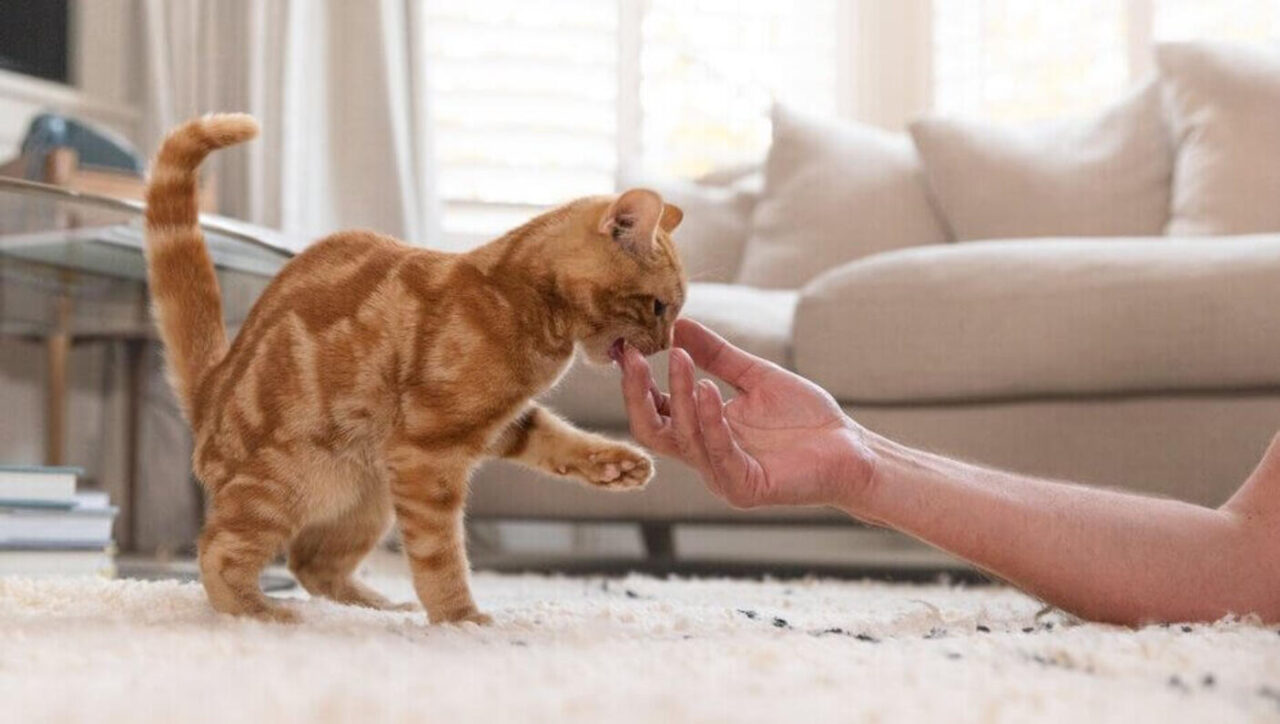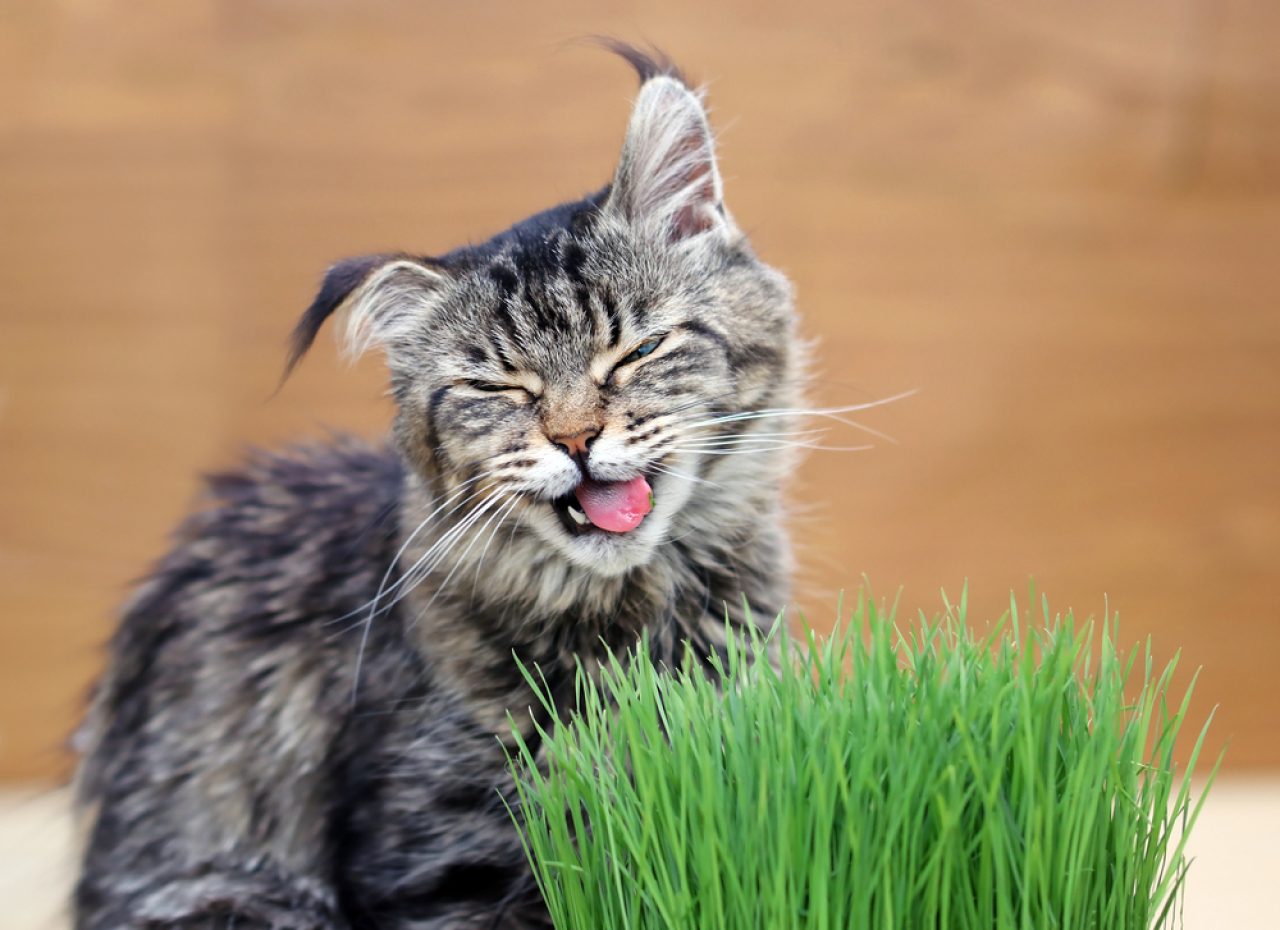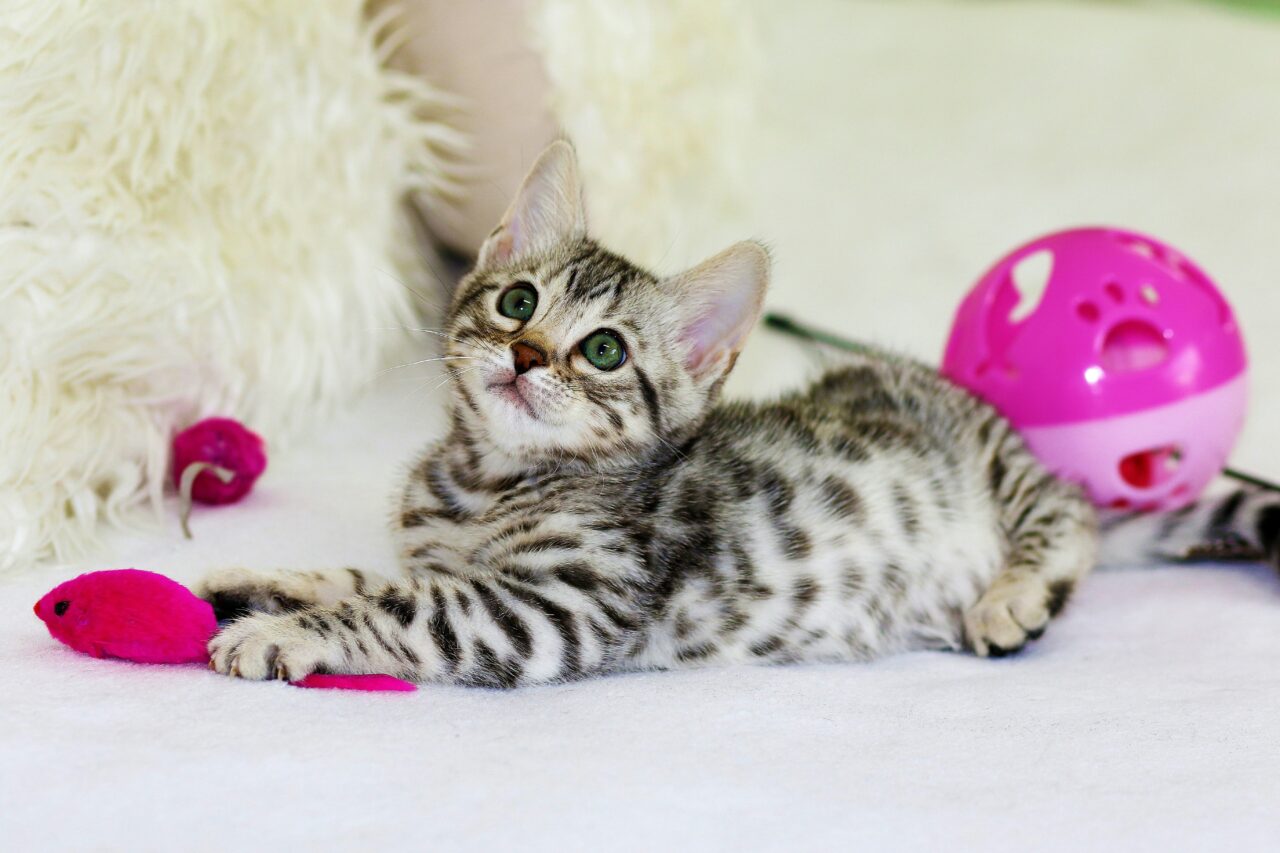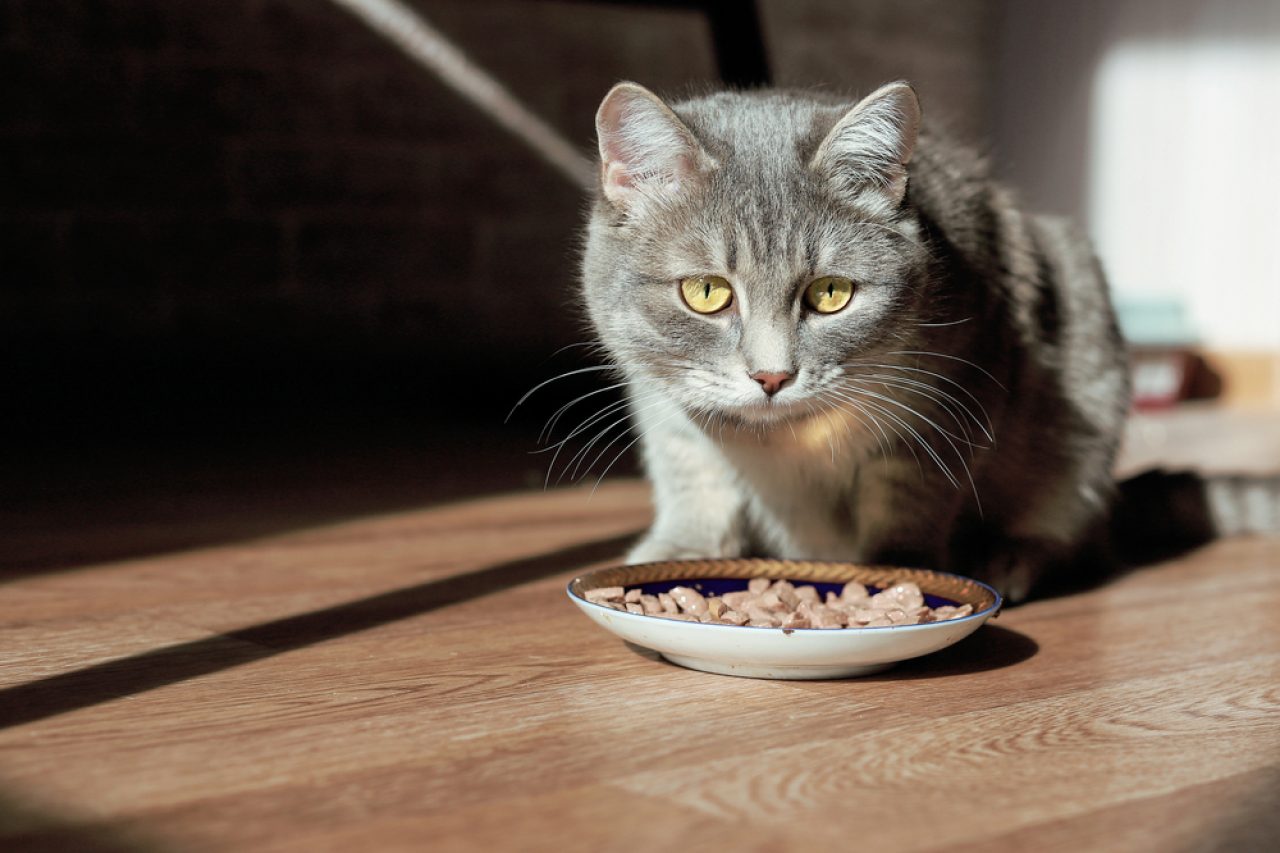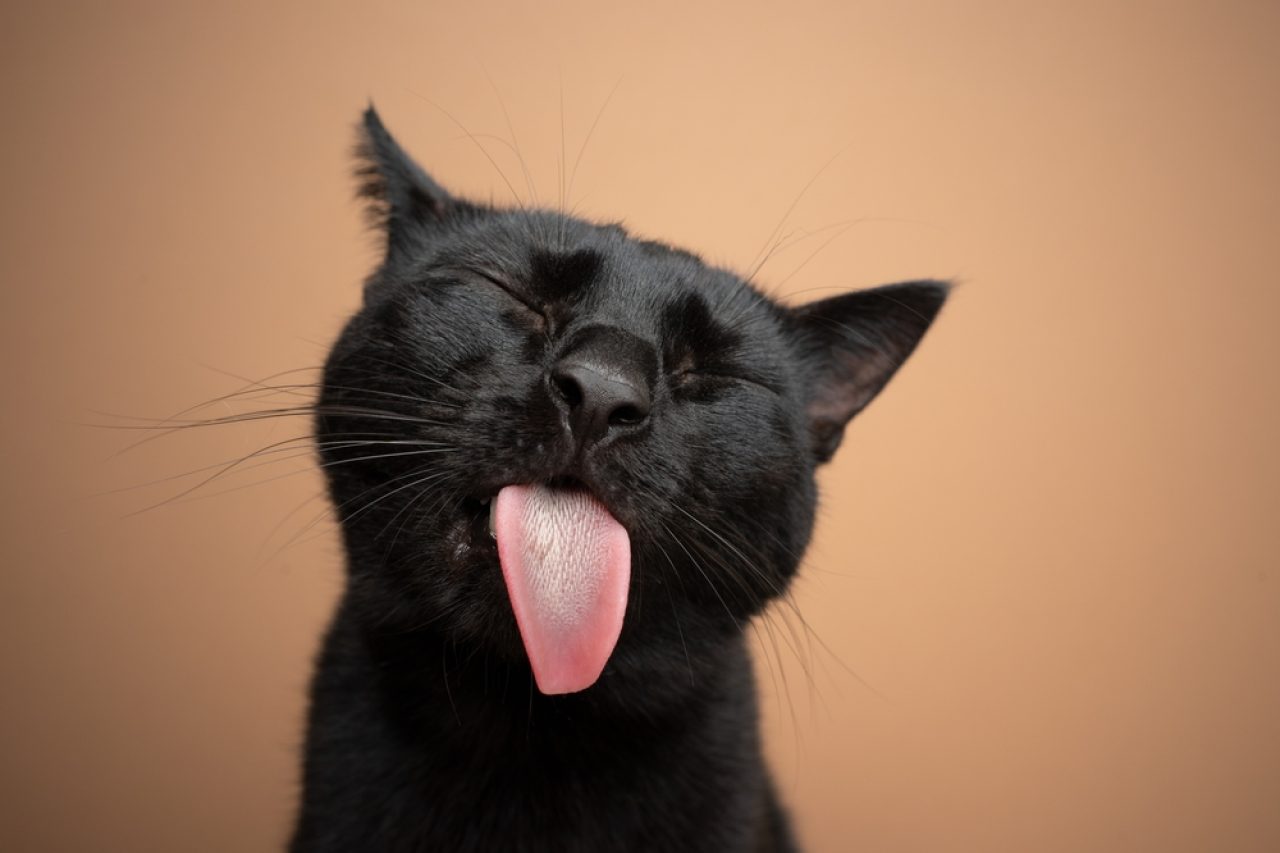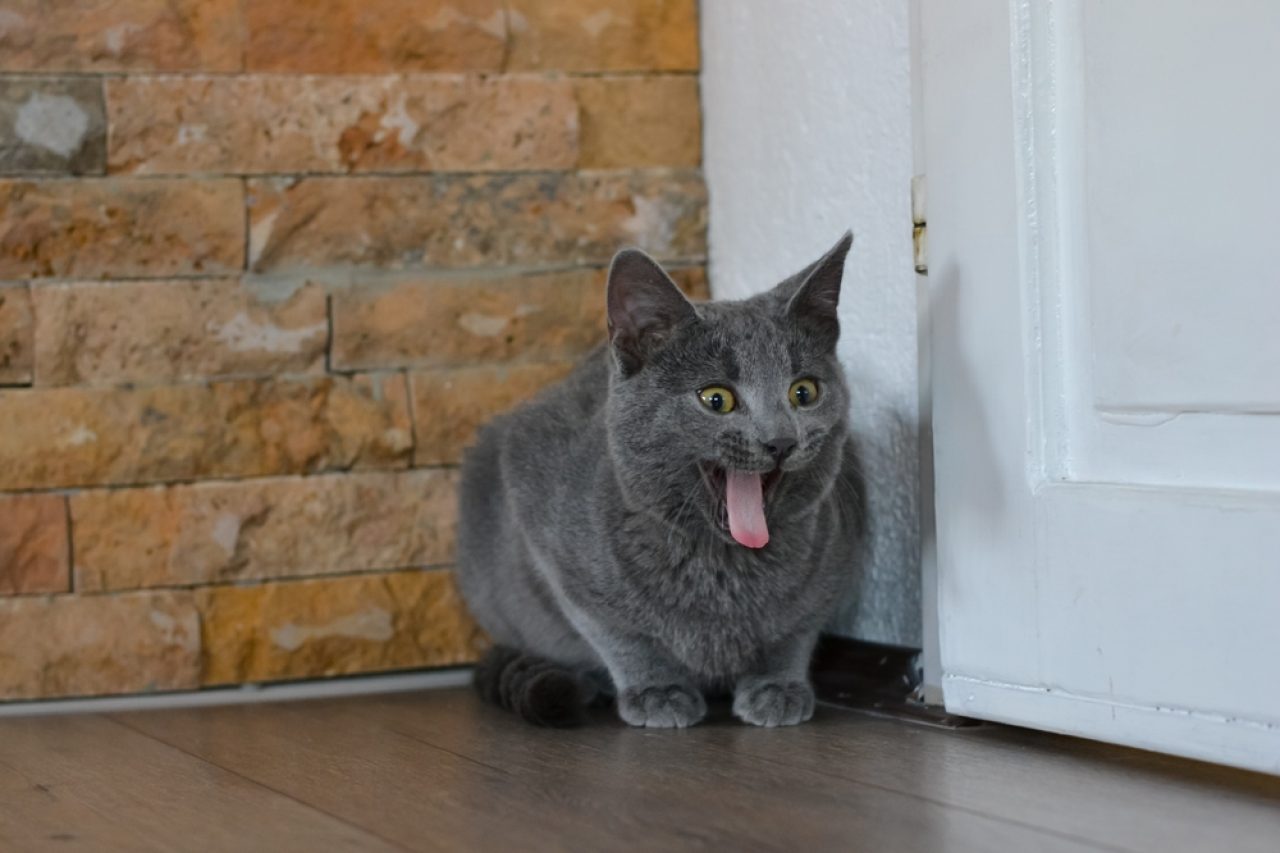📖 Table of Content:
Have you spotted your cat gagging at food and now you’re frantically looking for an answer? What could be the reason she’s reacting that way?
We know that even though cats are obligate carnivores, they enjoy occasional human-food munchies, and they absolutely love to eat. They’re curious beings, so sometimes they may ingest something they shouldn’t.
As long as the texture and the smell are attractive, she won’t hesitate to dip her nose into it. It has been said for a reason that curiosity killed the cat. Once you have your own furbaby, you’ll understand where this saying comes from!
Before I start untangling the knot, you need to know that you’re not alone. There are a lot of other cat owners who have gone through the same situation. So, take a deep breath and try to relax.
I know it’s easier said than done, but in this article, we’ll cover possible reasons your cat is gagging at food and how you should behave in case that happens. Let’s start.
1. Ate too quickly
It’s really that simple. She was gulping down her food too fast and now it all wants to come out. Sometimes cats eat too much and way too quickly, so this is (to some extent) normal behavior in those cases.
Your cat may be gagging at food after she ingested it and she may even spit it up right after swallowing. To prevent this, try to serve your furbaby smaller portions of food, so she doesn’t eat all of it in one sitting.
Also, you can create an eating habit for your feline and serve her meals at a particular time of the day. This will help you to prevent those occasions when she’ll eat big chunks of food and then gag.
2. Accidentally swallowed something
I don’t know how many times you’ve heard (including in this article) that cats absolutely enjoy exploring the world around them and, sure enough, they adore eating – be it food or anything that looks remotely edible.
Therefore, if your cat has suddenly started gagging after having served her food, it may happen that she swallowed a foreign object and is now struggling with it. Some things will simply go through her digestive system and she’ll poop them out, while others may provoke gags.
Maybe she found a string-like material on the floor or a piece of plastic and she tried to eat it, not because she was hungry, but because she was curious. If she doesn’t throw it up and you’re sure she ingested something she shouldn’t, seek medical attention immediately.
3. Ingested a toxic substance
If your kitty licks something toxic from the floor or somehow manages to ingest a piece of a toxic house plant, she may start gagging. Some of those include citrus fruit, philodendron, Ficus, and Oleander, which are common in our homes.
For example, I love those cleaning products that have a citrus smell. Ever since I adopted a couple of cats and have started to occasionally foster some, I now avoid all of these detergents because even though they are mildly toxic for cats, I don’t want to try our luck.
Talking about toxic plants, she may eat a small part of it that ended up on your living room floor and you didn’t spot it until it was too late.
Please be careful when using chemical products and choosing your house plants. Keep your furchild’s health and happiness in mind.
4. Trying to cough up hairballs
Hairballs aren’t unknown to you, so you’ve probably seen your cat coughing up some hairballs. They’re one of the main causes of gagging and it will take your feline a couple of tries before she gets them out of her system.
I know it’s pretty gross to discuss, but it’s possible that hairballs are sometimes hidden in vomit, so you may not notice them. However, if you do and your feline is vomiting hairballs, the reasons for this may be food allergies, hormonal issues, intestinal problems, or some other illness.
As soon as you notice that something is not okay, call your vet and make an appointment.
5. Doesn’t like the food you’ve served
I assume this was an easy guess. If your cat is gagging at food, she doesn’t like what you’ve served her. Cats have WAY stronger smell receptors than people. This is thanks to her Jacobson’s organ (also known as the vomeronasal sac).
This organ is located in the upper part of the mouth and she uses her tongue to direct scents there. If she doesn’t like it, she may end up gagging. Also, the texture of the food may not be pleasant and therefore your feline will refuse to eat the meal you gave her.
All cats are different, so they won’t all gag at the same food, but the most common scents that irritate them include mint, cinnamon, lavender, and citrus fruits. She may also have a gagging reflex after smelling broccoli, cheese, or the coffee you can’t live without.
6. Health problems
One of the reasons not so easily accepted is that your feline may have some health issues that can cause gagging. Most severe diseases have nausea and vomiting as the first signs that something’s wrong.
If your cat is gagging at food for no apparent reason, especially if you know that she usually loves what you’ve served her, she may be struggling with something serious. Gagging can indicate that she has some digestive problems.
Alternatively, she may have kidney disease, asthma or other respiratory illness, or problems with her liver or heart. In all of these cases, the most important thing is that you take her to the vet if you see that she is not her usual self.
7. Bacterial infection
Bacterial infection is not something that happens often, but it’s possible. Clostridium perfringens (bacteria that can be found in undercooked or raw food, especially meat) grows in environments with a lack of oxygen.
Therefore, food that’s not prepared properly is a perfect breeding ground for it, leading to gagging, nausea, and vomiting. Your cat’s appetite may decrease drastically to the point where she may even refuse everything she usually adores.
I know it’s amazing to prepare food on your own. You add a lot of love in every meal that you serve to your furbaby! But you have to be really careful when choosing and preparing the ingredients.
8. It’s not the food; it’s a cleaning product
I’ve already mentioned before that she may be gagging because of mint, citrus fruits, and lavender – the most common fragrances of cleaning products. So, if your cat is gagging at food, it’s not necessarily the food; maybe it’s the cleaning product you used to wash her bowl or eating area.
Let’s say you’re using liquid soap for your wooden floor that has lavender as the main scent and you’ve just cleaned the living room. You forgot to take her food bowl out into the hall, so now she has to eat there.
Since the floor in her little part of the room smells like lavender now, she may have problems with gagging and eating her food in the end. Those cleaning products usually have a strong scent and add a cat’s nose to that – Houston, we have a problem!
9. Just coughing
It’s easy to mistake one for the other, so don’t blame yourself for thinking that your cat is gagging when she’s actually just coughing. Maybe she failed to eliminate a hairball from her throat. So, it may not be serious at all.
However, pay attention if this keeps repeating, since coughing may indicate that something’s wrong with her respiratory system. It may be a sign of asthma or some other lung disease.
